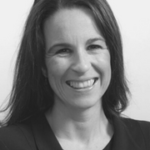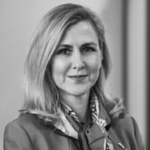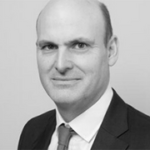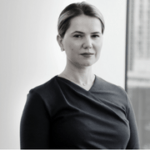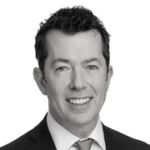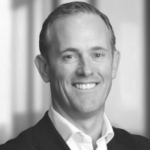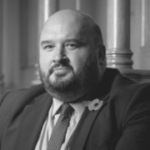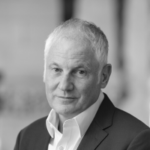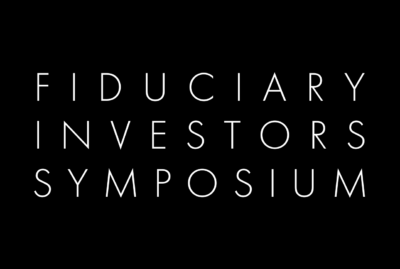This session will look at the multi-faceted nature of the transition to a low-carbon economy and the implications for investors’ portfolios. It will explore a risk and return dimension, looking at how the potential policy paths accompanying the transition will affect macro pressures, including mounting inflationary pressures, as well as from an impact dimension and how investors are seeking to build scalable portfolios that support their net zero commitments.
Investors in 2022 face a formidable task prioritising sustainability issues in a changing and volatile macro-economic environment. This session will look at the year ahead and how investors can navigate their priorities including; understanding new regulations from across the globe, reporting standards; data, net-zero commitments, the energy transition and beyond; as well as how we are holding corporates and fund managers to account in a bid to wipe out greenwashing. Through case studies this session will examine the next generation strategies and tools for effective investor engagement and what frontier topics investors should be considering.
ESG scores are the dominant metric in sustainable investing but they are criticised for not accurately identifying sustainability impacts. As investors move towards an impact focus this session will explore how measuring an investment’s positive and negative contributions to the sustainable development goals can be a complementary lens to the integration of ESG risk.
This welcome address outlines the university’s sustainable journey and the pirorities and progress in its mission to embed sustainability as a core value across its global programs, research and footprint.
This fireside chat will discuss the sustainable priorities of the endowment for the University of Cambridge including climate, diversity and how it holds managers to account.
Most rhetoric about mitigation has focused on new energy infrastructure technologies but there is no longer time left to deploy them at sufficient scale. Mitigation will be delivered almost entirely by closing processes that cause emissions by their chemistry and electrifying everything else, and we won’t have as much electricity as we want. This realisation shines a new light both on valuation and on investment risk. Markets cannot currently value climate risk as corporate plans depend mainly on untestable rhetoric. Julian Allwood, who is Professor of Engineering and the Environment and leads the largest and most inter-disciplinary research group in the University of Cambridge dedicated to climate mitigation, has proposed a new mechanism (ZERPAs) to allow proper valuation, based on pre-purchasing access to the scare resources required to deliver mitigation. This, or some similar instrument, will allow investors to revalue assets in the light of future resource scarcity, and to reallocate capital towards businesses compatible with more achievable pathways to real mitigation.
This case study looks at the financial aspects of investing in the energy sector and why growth can harm rather than help investor returns. It proposes that a low or no investment strategy might be a better strategy once risk is taken in to account. It looks at how investors should incorporate such a strategy including engaging with management for no-growth low-cost strategies.
Sovereign bond investors can create impactful portfolios by embracing climate change concerns and incentivising transformation. A key focus should be on a country’s emissions, measuring and comparing emissions by country and broadening exposures beyond green bonds. This session examines the important role of sovereign bonds in the transition to a greener world. generation strategies and tools for effective investor engagement and what frontier topics investors should be considering.
Infrastructure investments face many and complex challenges including sustainability. This session looks at specific case studies of ESG in legacy infrastructure as well as the investor priorities with regards to green energy infrastructure.
INCLUDES TABLE DISCUSSION
The Cambridge Conservation Initiative, under the patronage of Sir David Attenborough, has committed to placing biodiversity at the centre of natural capital approaches to make the economic values of nature more visible. This session will look at how quantifying the economic values of nature can be an important conservation tool, recognising that quantifying all the values we derive from nature is nearly impossible.
This session outlines the approaches that innovative investors are taking to develop nature-friendly asset management and create an investment framework for biodiversity. It examines the essential need to pool resources to tackle an issue as big as biodiversity.
New academic research outlines a simple and robust methodology to align portfolios with a science-based, carbon budget consistent with maintaining a temperature rise below 1.5 degrees celsius with 83 per cent probability, all while keeping the tracking error at a negligible level. It also establishes an exit roadmap, predicting when companies will exit the portfolio. The paper addresses four sources of risks: uncertainty around a rapidly shrinking carbon budget, time impacts on decarbonization rates, implementation risk due to market-wide selling pressure, and uncertainty about taxes on polluting companies.
The giant Canadian investor, CPP Investments, has produced a framework and standardised template to measure the capacity of organisations to remove or abate GHG emissions. This session outlines the framework and looks at the implications including the prospect of catalysing future decarbonising efforts by helping companies prioritise the highest impact and economic opportunities, and give them confidence in their progress to net zero.
What does it really mean to implement a net zero strategy? As more investors make pledges for net zero they are tasked with setting a strategy to achieve these goals. This session looks at the challenges of implementation including what behaviour changes are needed and how investors really need to allocate.
This session will enable delegates to workshop the implications for asset allocation and portfolio construction of a net zero strategy. It will start by hearing from three investors on their approach and then roundtable discussion and sharing of ideas will ensue.
Professor Sir David King is Emeritus Professor of Chemistry, University of Cambridge; founder and chair of the Centre for Climate Repair in the university and chair of the climate crisis advisory group as well as senior strategy adviser to the President of Rwanda. He was the UK Government Chief Scientific Adviser from 2000-2007 and the Foreign Secretary’s Special Representative on Climate Change from 2013-2017. In February this year he was awarded the David and Betty Hamburg AAAS award for Science Diplomacy
Through case studies this session will examine the next generation strategies and tools for effective investor engagement and what frontier topics investors should be considering.
Building from literature reviews of hundreds of academic papers and a large-scale qualitative research project with senior asset owner representatives, this session examines a number of evidence-based strategies for effective active stewardship and explores an asset class-specific approach to mitigating systemic risks and harms to investment portfolios and the real economy. It concludes with a look at some practical impactful, high-profile leadership initiatives.
Commissioned by The Generation Foundation, the UN-supported Principles for Responsible Investment and the UN Environment Programme Finance Initiative the “Freshfields Report” analyses the law in 11 global investment hubs and reveals whether it permits – or even requires – investors to seek to influence the activities of investee companies and third parties in ways that have a positive sustainability impact, either to achieve their financial goals or as a standalone objective. It is a useful tool in reframing investors lens to be one of impact not ESG.
Giant Dutch pension provider, PGGM, has been a leader in embracing 3D portfolios shaped around risk, return and impact. This case study looks at the journey so far and what is next in linking the portfolio to positive real-world outcomes.
The war in Ukraine has highlighted the need to delicately balance energy security with the energy transition. This session will hear from Russia expert, Professor Stephen Kotkin on the short and long term implications.


